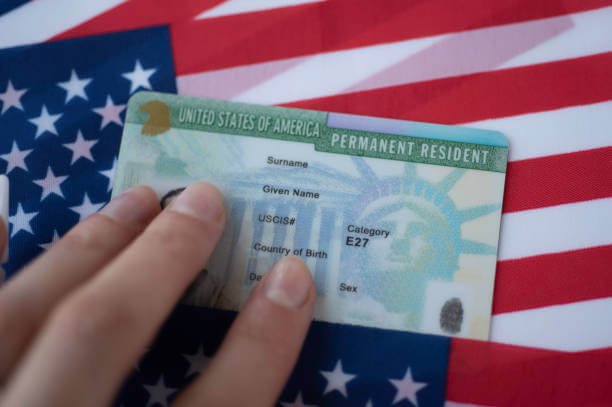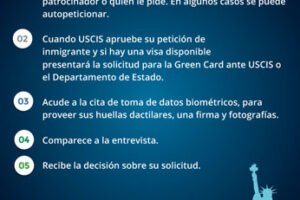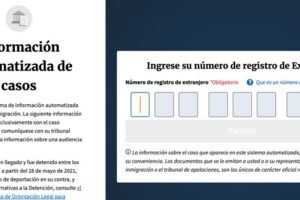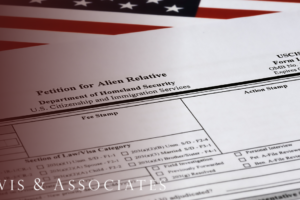How long does it take to get a juvenile visa after approval?

The process to obtain a youth visa, formally known as Special Immigrant Juvenile Status (SIJS), is a critical route for young Hondurans living in the United States seeking to regularize their immigration status.
The period required for juvenile visa processing after judicial approval fluctuates, usually ranging from 180 to 365 days before USCIS issues the green card.
Influences on the Processing Period:
- USCIS Workload: The number of applications handled by USCIS can impact the length of your application process.
- Case Complexity: More complex cases or those with incomplete documentation may experience additional delays.
- Quota of Visas Available: The limited availability of visas in the SIJS category may influence the time required to obtain a green card.
How to speed up the visa approval process?
There are several strategies to try to expedite the process of obtaining a juvenile visa after approval by a juvenile court:
- Request Expedition for Reasons of Public Interest:
- File an application with USCIS to expedite your case, arguing the existence of a significant public interest. This may include situations where the applicant is a student who needs the visa to begin university studies, an employee whose work is essential and requires presence in the U.S., or in cases of serious illness requiring medical treatment in the United States.
- File a Motion to Reopen and Reconsider:
- If your application is denied, you have the option to ask USCIS to reconsider your case by filing a motion. You must include new evidence or arguments that justify a review and eventual approval of your application.
- Contact your Congressional Representative:
- Sometimes, involving your congressional representative can be helpful in facilitating communication with USCIS and getting updates on the status of your case.
- Hire an Immigration Lawyer:
- A specialized professional can advise you in the preparation and filing of your juvenile visa application, as well as represent you before USCIS, which could improve your chances of success and speed up the process.
It is crucial to understand that these actions do not guarantee an acceleration in the process of obtaining the juvenile visa. However, they can be useful to increase the chances of receiving a response in a more expeditious manner.
Youth Visa Requirements
To be eligible for a youth visa, the applicant must be under 21 years of age and unmarried. In addition, you must have been adjudicated dependent in a U.S. juvenile court or be in the custody of a government agency or department, a state-designated entity, or a court-appointed private individual or entity.
In addition, it is essential that the court has concluded that it is not feasible for the child to return to his or her country of origin due to abuse, abandonment or neglect by one or both parents.
Application Process
This procedure involves several steps, beginning with the filing of Form I-360 (Petition for Amerasian, Widow(er), or Special Immigrant) with the U.S. Citizenship and Immigration Services (USCIS).
Once the Form I-360 application is filed and all requirements are met, including documentation supporting the petition, the processing time may vary, as mentioned above.
After Approval
Once the juvenile visa is approved, the next step is to apply for adjustment of status to lawful permanent resident by filing Form I-485 (Application to Register Permanent Residence or Adjust Status).
It is important to note that this application can only proceed if a visa is available for the applicant’s category, which can be verified in the U.S. Department of State’s Visa Bulletin.
Cost of the Youth Visa
The total cost to obtain a juvenile visa includes several components, from attorney fees, which can range from $1,500 to $5,000, to USCIS fees, which total approximately $2,340 for Forms I-360, I-485, I-765 (work permit), and I-864 (statement of financial support).
In addition, other expenses such as medical examinations, translation of documents and photos must be considered for the application.
Important Tips and Considerations for Youth Visa Applicants
Once the youth visa is approved and you are ready to move forward with your adjustment of status, there are several considerations and tips that can help you navigate the process more effectively and with a greater chance of success.
Planning and Anticipation
- Apply As Soon As Possible: Given the variable processing time, it is crucial to start your application as soon as possible, especially given the expiration date of your current U.S. status.
- Complete and Accurate Documentation: Make sure your application and all supporting documents are complete and error-free. Accurate documentation can prevent delays or denials.
Maintenance of Legal Status
- Current Legal Status: Maintaining lawful immigration status in the U.S. is critical throughout the process. Leaving the country without a proper Advance Parole may jeopardize your application and your ability to adjust your status.
Correct Use of the Travel Permit
- Advance Parole: If you need to travel outside the U.S. while your application is pending, be sure to apply for and receive an Advance Parole before leaving the country. Traveling without this document may result in the inability to re-enter the U.S. and affect your application.
Special Cases: TPS and DACA
- Considerations for TPS and DACA: Temporary Protected Status (TPS) and Deferred Action for Childhood Arrivals (DACA) beneficiaries have special considerations when applying for the youth visa. It is important to be aware of current policies and how they may affect your case.
Resources and Support
- Legal Advice: Given the complexity of immigration law, consulting with an immigration attorney can be invaluable in navigating the process and increasing your chances of success.
- Online Resources: Websites such as USCIS and immigrant rights organizations can offer helpful guides and tips for completing your application.






